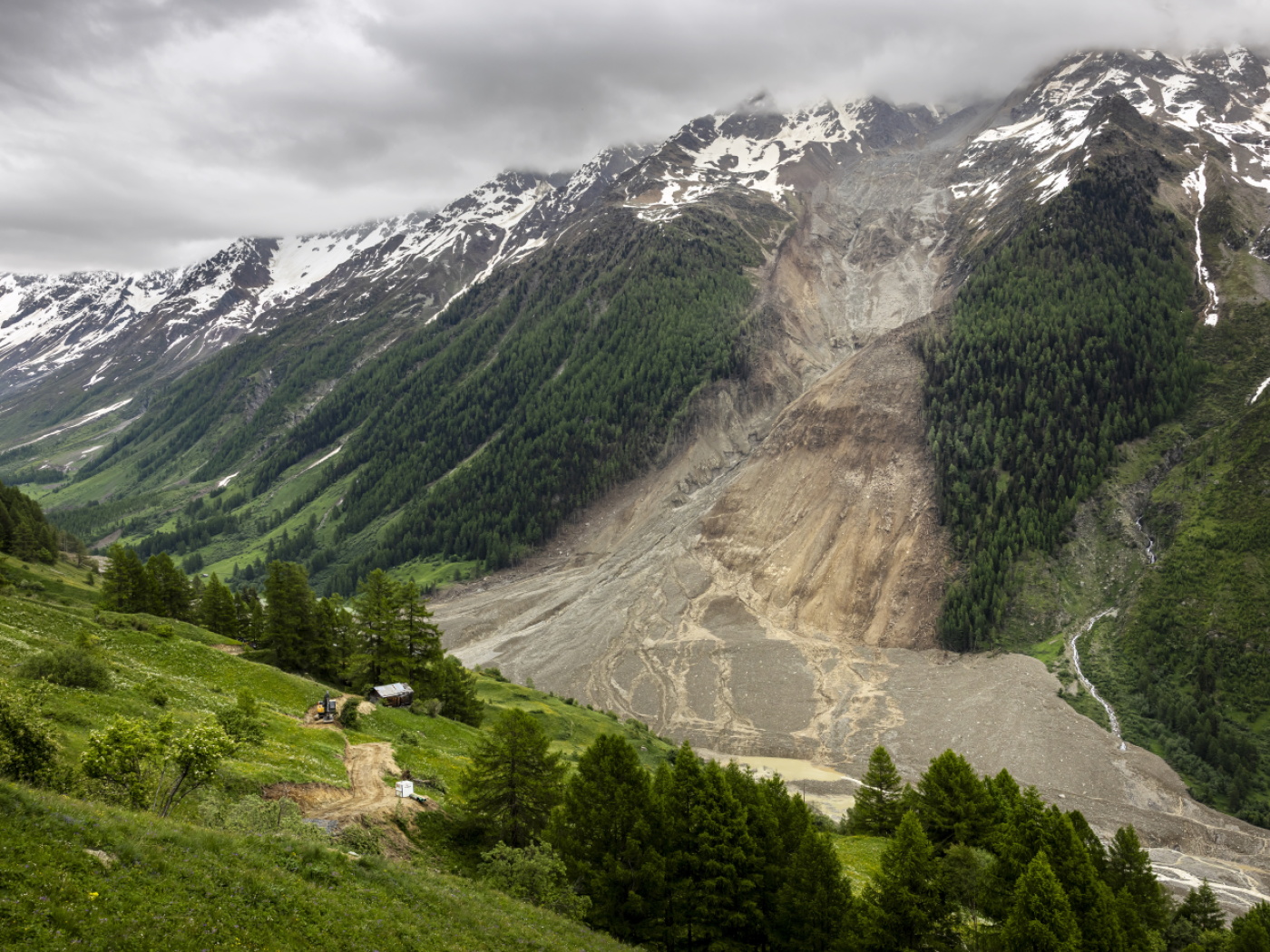
Swiss landslide clear-up part funded by missing banknotes

A Swiss charity, which covers the uninsured damage of natural disasters, is supporting the landslide-devasted villages of Blatten and Ried – partly funded by the proceeds of lost banknotes.
+Get the most important news from Switzerland in your inbox
The foundations Fonds Suisse is among a host of agencies offering to help the villagers get back on their feet.
Daniel Arni, managing director of Fonds Suisse, explained the funding mechanism to Swiss public broadcaster SRF.
+ Why do Swiss mountains collapse? It’s complicated
“When the Swiss National Bank (SNB) issues new banknotes, it recalls the old ones. Twenty-five years after the banknote are recalled, the value of the notes that were not exchanged will be distributed,” said Arni said. Fonds Suisse will receive a portion of this.
Last month, the Swiss central bank transferred almost CHF180 million to the foundation from its CHF400 million missing banknote fund.
+ What can be done about melting mountain permafrost?
Some of this money will be used by Fonds Suisse to pay for damage that cannot be insured and is not covered by the state or other donors.
“Most of the time, it’s about restoring and securing freight roads or clearing and cultivating agricultural land,” says Arni. This was also the case last summer, when Fonds Suisse allocated funds following the storms in Valais, Mesox, and the Maggia Valley.
In the Lötschental valley, in which Blatten and Ried are situated, people are grateful for this support.
Council president Christian Rieder is deeply concerned, especially about the money: “We need to build a livelihood for people in the short and medium term, especially a place to live. The crisis management currently underway, including the emergency services, will also cost a fortune.”

More
Some landslide-hit Swiss village residents able to visit homes
Adapted from German by DeepL/mga
We select the most relevant news for an international audience and use automatic translation tools to translate them into English. A journalist then reviews the translation for clarity and accuracy before publication.
Providing you with automatically translated news gives us the time to write more in-depth articles. The news stories we select have been written and carefully fact-checked by an external editorial team from news agencies such as Bloomberg or Keystone.
If you have any questions about how we work, write to us at english@swissinfo.ch

In compliance with the JTI standards
More: SWI swissinfo.ch certified by the Journalism Trust Initiative




























You can find an overview of ongoing debates with our journalists here . Please join us!
If you want to start a conversation about a topic raised in this article or want to report factual errors, email us at english@swissinfo.ch.